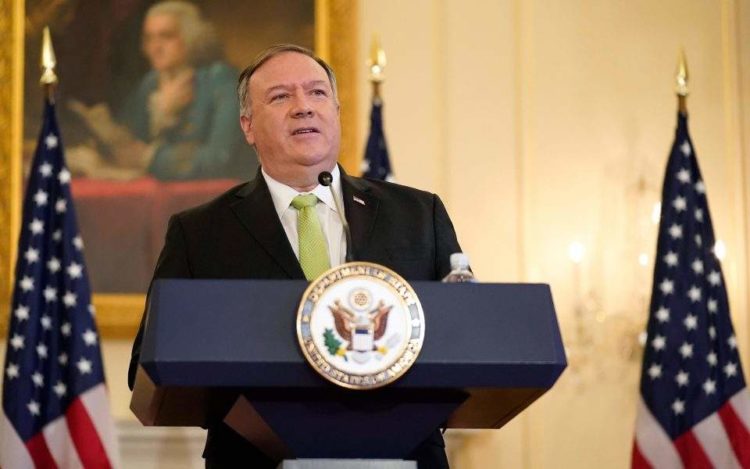What was supposed to be a virtual conference to discuss how NATO should adapt for 2030 and beyond, turned into a fiery confrontation between several foreign ministers and the Turkish delegation.
Turkey’s behavior was called out by several foreign ministers but specifically by U.S. Secretary of State, Mike Pompeo. He was then answered by an equally blunt Turkish Foreign Minister Mevlüt Çavuşoğlu.
The fireworks between several ministers and Turkey showed that Turkey is growing increasingly isolated from other members of NATO. This isn’t a great sign for the alliance’s future.
Pompeo referred to the provocative actions of Turkey as contrary to the principles and operation of NATO and said that they ultimately undermine the alliance’s cohesion. He highlighted Turkish actions in the Eastern Mediterranean, Libya, Syria, Nagorno-Karabakh, and Turkey’s purchase of the Russian anti-missile system S-400 which he characterized as “a gift to Russia” by a NATO alliance member.
Çavuşoğlu fiery response, which went off script, blasted Pompeo and the United States. He accused Pompeo of undermining Turkey by working behind the scenes with European allies and by urging the rest of the alliance to side against Turkey. He also complained of Washington siding blindly with Greece in regional conflicts and of refusing to sell Ankara U.S.-made Patriot anti-aircraft weapons.
Çavuşoğlu didn’t stop there. He also accused the U.S. of backing Kurdish “terrorist organizations” in Syria, while Turkey fought alone against the Islamic State. He stated that the U.S. and France had made the conflict worse in Nagorno-Karabakh by backing the Armenians.
Greek Foreign Affairs Minister Nikos Dendias rejected the Turkish accusation of having “maximalist ambitions.” He then accused the Turks of being the main disruptor in the region and added that if the Greek position is maximalist, “so is international law.”
Dendias added that all NATO allies must demonstrate in practice their commitment to key NATO principles, such as democracy, respect for human rights, and respect for the rule of law. In addition, he said, this need becomes even more urgent at a time when authoritarian and revisionist states are openly violating international law, threatening regional stability and transatlantic cohesion in the Eastern Mediterranean, Libya, and the Caucasus.
French Foreign Minister Jean-Yves Le Drian also chimed in against the Turks’ behavior. He said that cohesion within the alliance would be impossible to achieve if Turkey continues to display the same aggressive interventionism as displayed by Russia.
Çavuşoğlu at first praised Germany in trying to mediate the conflicts in the Mediterranean. Yet, he then accused the Germans of “piracy” over an incident in which German naval forces intercepted and boarded a Turkish ship suspected of trafficking weapons to Libya.
In that incident on November 22, soldiers from a German frigate under the EU’s arms control mission Operation Irini boarded and inspected the Turkish ship Roseline A. According to international law, the consent of the flag state must be obtained before initiating a search of a ship.
Already have an account? Sign In
Two ways to continue to read this article.
Subscribe
$1.99
every 4 weeks
- Unlimited access to all articles
- Support independent journalism
- Ad-free reading experience
Subscribe Now
Recurring Monthly. Cancel Anytime.










COMMENTS